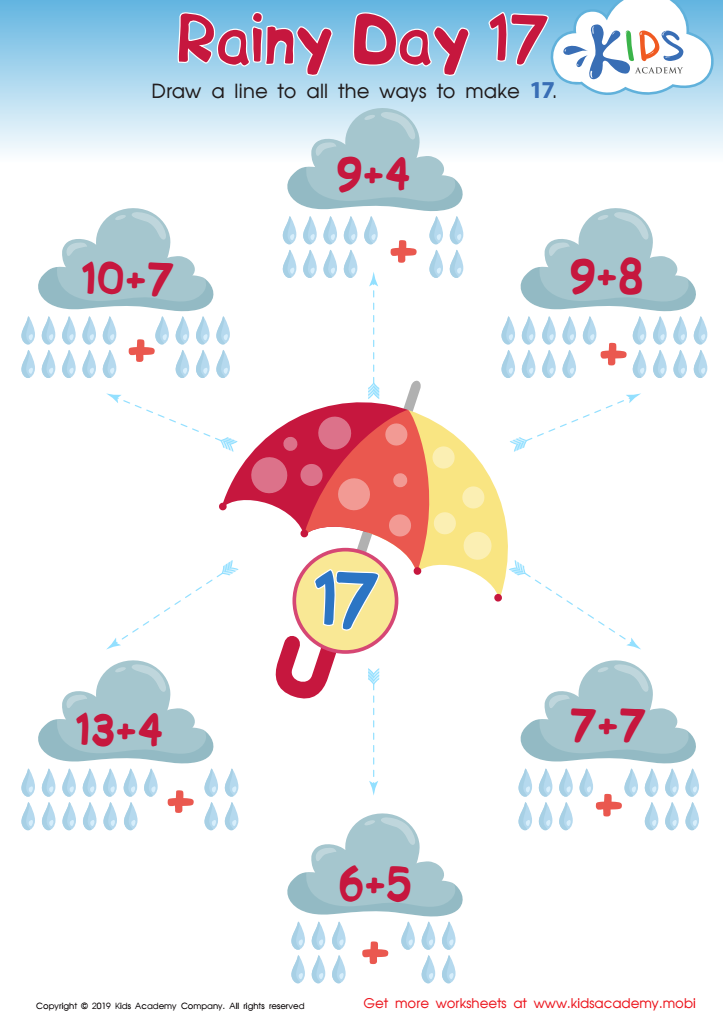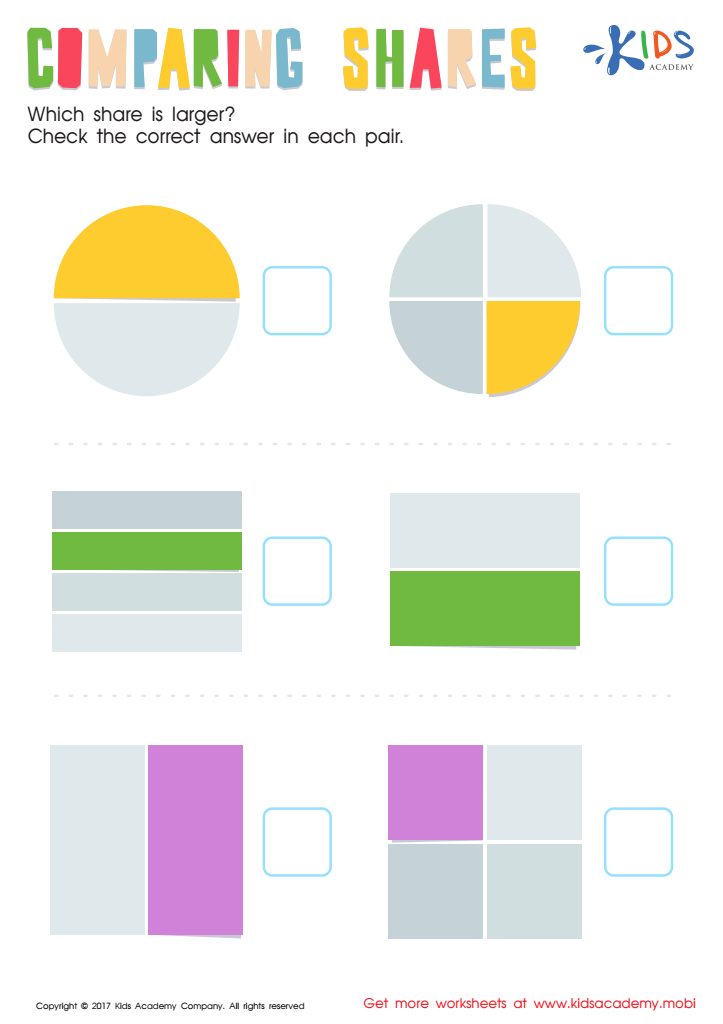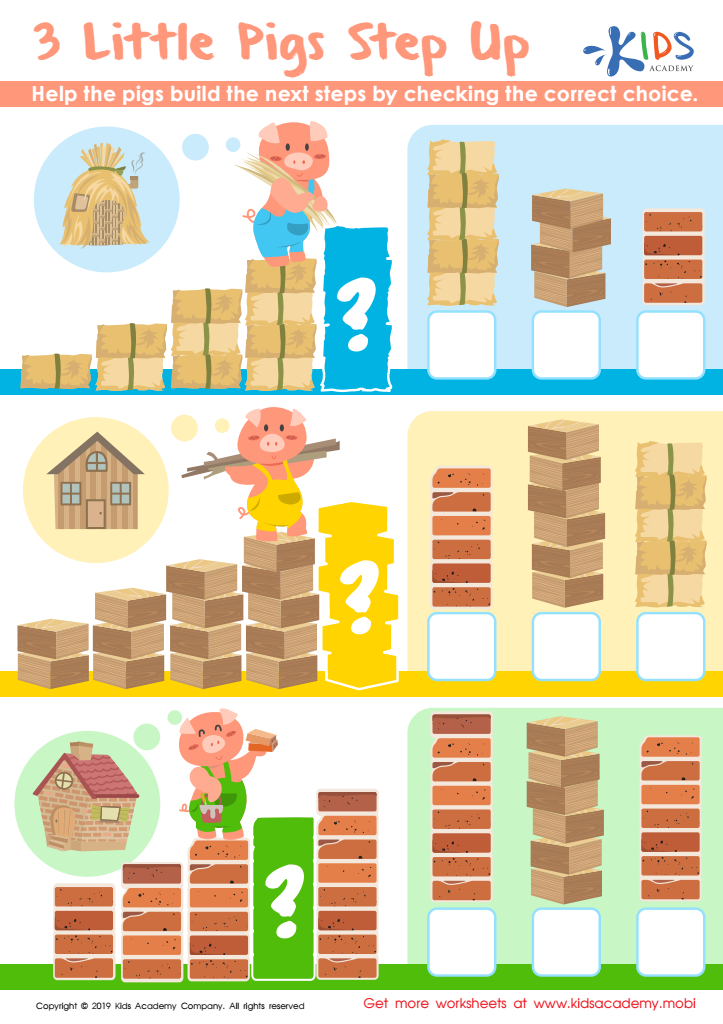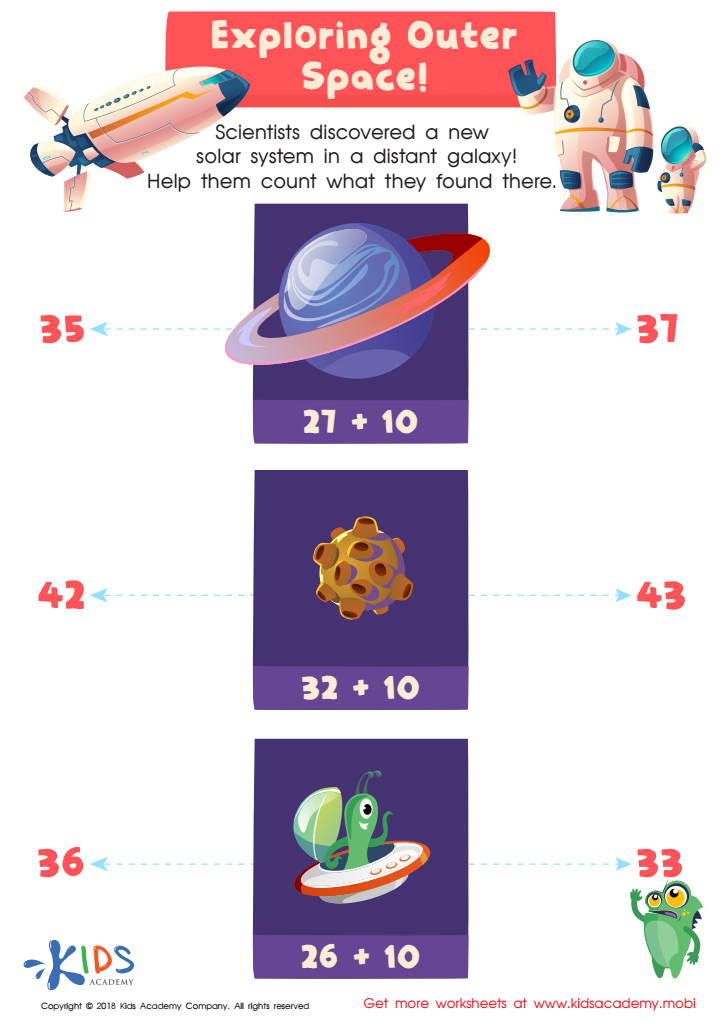Critical thinking skills Math Worksheets for 6-Year-Olds
4 filtered results
-
From - To
Enhance your child's cognitive abilities with our engaging Critical Thinking Skills Math Worksheets designed specifically for 6-year-olds! These worksheets promote problem-solving, logical reasoning, and analytical skills through fun and interactive math activities. Children will explore patterns, puzzles, and simple reasoning tasks that challenge their minds while building a strong mathematical foundation. Our user-friendly worksheets incorporate colorful illustrations and relatable themes to keep young learners motivated and excited about math. Perfect for at-home learning or supplemental classroom resources, these worksheets help your child sharpen their critical thinking skills and develop a love for mathematics. Start fostering analytical minds today!


Rainy Day 17 Worksheet


Comparing Shares Worksheet


3 Little Pigs Step Up Worksheet


Exploring Outer Space Worksheet
Critical thinking skills in math are essential for 6-year-olds as they lay the foundation for future learning and problem-solving abilities. At this age, children are naturally curious, making it an ideal time to nurture their analytical skills. Engaging kids in mathematical thinking encourages them to ask questions, identify patterns, and explore various problem-solving strategies rather than merely memorizing facts or formulas.
When parents and teachers prioritize critical thinking in math, they're helping children develop the ability to approach challenges systematically, which is crucial not only in mathematics but across all subjects. This skill fosters independence, as children learn to evaluate information, reason logically, and make informed decisions. Moreover, equipping young learners with strong critical thinking abilities enhances creativity, allowing them to see problems from different perspectives and come up with innovative solutions.
Furthermore, in our rapidly changing world, the ability to think critically about information, numbers, and data is becoming increasingly important. This equips children to navigate more complex concepts in later years and prepares them for real-world situations. By prioritizing critical thinking skills in math, parents and teachers can help cultivate lifelong learners who are not only proficient in math but also well-rounded thinkers ready to tackle future challenges.
 Assign to My Students
Assign to My Students


.jpg)













